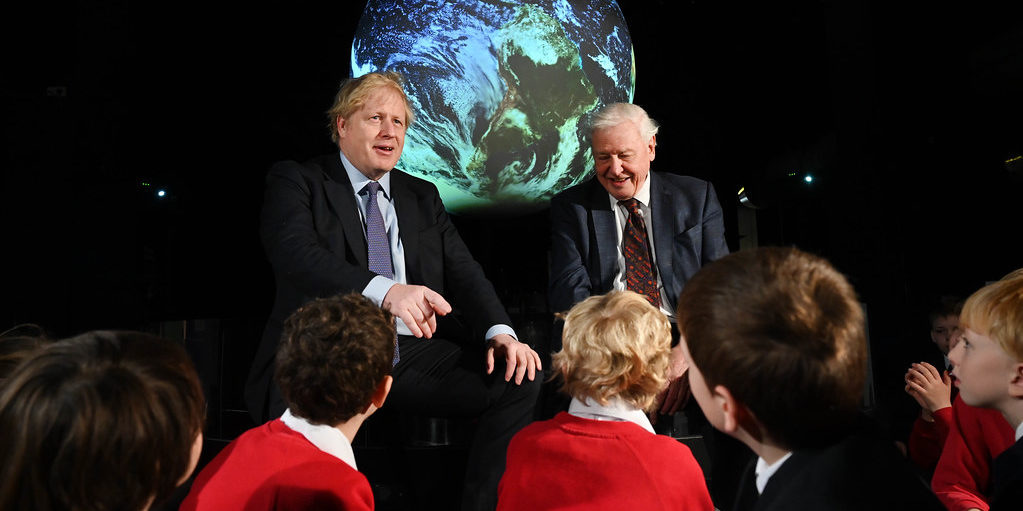The United Nations climate summit known as COP26 has convened in Glasgow, Scotland after being delayed a year by the COVID-19 pandemic. The COP is a proceeding of the UNFCCC – the United Nations Framework Convention on Climate Change. But the United Kingdom, hosting COP this year, has thrown up entry barriers that are proving insurmountable for many activists and observers from the global south.
Critics point out that this will be the whitest and most privileged COP since the first in 1992, due to vaccine apartheid and the UK’s obstructive visa requirements. An estimated 30,000 people have converged on Glasgow to attend the summit, and thousands of climate justice activists, mostly from Europe, are arriving to organize outside the summit compound, demanding action.
“This climate summit has been billed as the 1.5 degree climate summit,” Asad Rehman, executive director of War on Want and lead spokesperson for the COP26 Coalition, which is organizing a large march and rally in Glasgow followed by a four-day counter summit, said on the Democracy Now! news hour. “The window is closing on that target, which, if breached, will spiral us into catastrophic climate change. But the reality is, world leaders, particularly from the richest countries, are coming with such weak pledges that this might as well be called the 3-degree summit.”
“1.5 degrees” refers to the extent human-caused global warming will increase the average surface temperature of the earth, in degrees Celsius, over the pre-industrial era. The Paris Agreement’s principal goal was to limit global temperature rise to 1.5 degrees Celsius (2.7 degrees Fahrenheit). If that goal is met, the science says, the impacts of climate change could actually be halted, and even reversed. If we cross that 1.5 degree threshold, the consequences will likely be irreversible.
Dipti Bhatnagar, climate justice and energy coordinator at Friends of the Earth International, is one of those activists for whom entering the UK for the summit proved nearly impossible. She spoke to Democracy Now! from Maputo, Mozambique:
“The organization of this COP has been very deliberately done by the U.K. government to be this really exclusionary space. They know that if the progressive civil society from the global south is not there to hold people accountable in the halls of power, it’s going to be a lot easier for them to get away with carbon markets, not putting the finance or emissions reductions on the table.”
“Net zero,” according to a recent report from Friends of the Earth and others, is “a big con,” nothing more than “schemes…to mask inaction, foist the burden of emissions cuts and pollution avoidance on historically exploited communities.”
Brianna Fruean, a 23-year-old climate activist from Samoa, spoke at the opening session of COP26, pleading for climate action to save her low-lying Pacific island nation from destruction by the rising ocean.
“In the recent IPCC report [the UN’s Intergovernmental Panel on Climate Change, a consortium of thousands of climate scientists from around the world], the projections are that low-lying atolls have around a decade,” Brianna Fruean said on Democracy Now! “A decade is if we’re lucky, at the current trajectory that we’re on. For our smaller islands, it means the end.”
At COP15 in Copenhagen in 2009, then-secretary of state Hillary Clinton announced, to great fanfare, that wealthy nations would create a fund of $100 billion per year by 2020, to help poorer nations adapt to a changing climate and to build renewable-powered economies.
“They’re coming with basically one-fifth of that on the table. Of that, 80 per cent is in debt-creating loans,” Rehman said. “They’re moving the goalposts on finance.” He added, “We know change is coming. The only fight now is: What kind of change will it be?”
The Paris Agreement doesn’t even mention coal, oil or gas, which is why a movement has been launched for a Fossil Fuel Non-proliferation treaty, modeled on the nuclear non-proliferation treaty.
Much of the energy and direction in the climate justice movement is coming from young people around the world. Greta Thunberg, the 18-year-old Swede who sparked the global Fridays for Future student strike movement, slammed the decades-old climate negotiations at a “Pre-COP” in Milan last month:
“Build back better, blah, blah, blah. Green economy, blah, blah, blah. Net zero by 2050, blah, blah, blah….This is all we hear from our so-called leaders: words that sound great but so far have led to no action. Our hopes and dreams drown in their empty words and promises.”
These global youth leaders, including Brianna Fruean from Samoa and Vanessa Nakate of Uganda, bring personal, frontline experiences with the climate emergency and a deep commitment to intersectional organizing and global justice to their work.
“It’s now up to people,” Asad Rehman concluded. “People power is the only solution that’s left.”
This column was originally published on Democracy Now!



